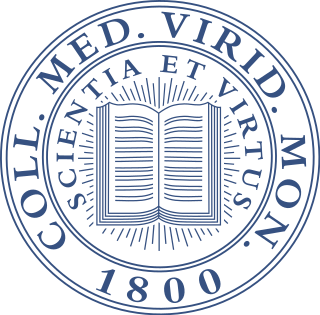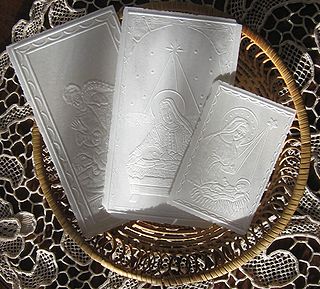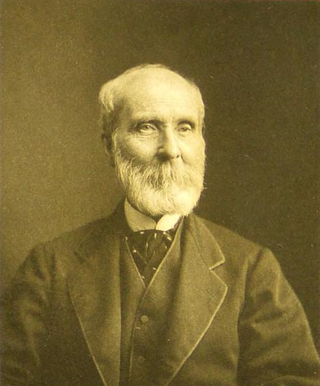
Matzah, matzo, or maẓẓah is an unleavened flatbread that is part of Jewish cuisine and forms an integral element of the Passover festival, during which chametz is forbidden.

Passover, also called Pesach, is a major Jewish holiday for Rabbinical Judaism, Karaite Judaism, and Samaritanism, one of the Three Pilgrimage Festivals, that celebrates the Exodus of the Israelites from slavery in Biblical Egypt.

Robert Lee Frost was an American poet. His work was initially published in England before it was published in the United States. Known for his realistic depictions of rural life and his command of American colloquial speech, Frost frequently wrote about settings from rural life in New England in the early 20th century, using them to examine complex social and philosophical themes.

Pita or pitta is a family of yeast-leavened round flatbreads baked from wheat flour, common in the Mediterranean, Levant, and neighboring areas. It includes the widely known version with an interior pocket, also known as Arabic bread. In the United Kingdom, Greek bread is used for pocket versions such as the Greek pita, and are used for barbecues as a souvlaki wrap. The Western name pita may sometimes be used to refer to various other types of flatbreads that have different names in their local languages, such as numerous styles of Arab khubz (bread).

Xavier Cugat was a Spanish musician and bandleader who spent his formative years in Havana, Cuba. A trained violinist and arranger, he was a leading figure in the spread of Latin music. In New York City, he was the leader of the resident orchestra at the Waldorf–Astoria before and after World War II. He was also a cartoonist and a restaurateur. The personal papers of Xavier Cugat are preserved in the Biblioteca de Catalunya.

Middlebury College is a private liberal arts college in Middlebury, Vermont. Founded in 1800 by Congregationalists, Middlebury was the first operating college or university in Vermont.

Lavash is a thin flatbread usually leavened, traditionally baked in a tandoor or on a sajj, and common to the cuisines of South Caucasus, West Asia, and the areas surrounding the Caspian Sea. Lavash is one of the most widespread types of bread in Armenia, Iran and Turkey. The traditional recipe can be adapted to the modern kitchen by using a griddle or wok instead of the tonir.

Azymite is a term of reproach used by the Eastern Orthodox Church since the eleventh century against the Latin Church, who, together with the Armenians and the Maronites, celebrate the Eucharist with unleavened bread. Some Latin controversialists have responded by assailing the Greeks as "Fermentarians" and "Prozymites".

Sacramental bread, also called Communion bread, Communion wafer, Sacred host, Eucharistic bread, the Lamb or simply the host, is the bread used in the Christian ritual of the Eucharist. Along with sacramental wine, it is one of two elements of the Eucharist. The bread may be either leavened or unleavened, depending on tradition.

Christmas wafer is a Catholic Christmas tradition celebrated in Poland, Lithuania, Moravia, and Slovakia. The custom is traditionally observed during Kūčios in Lithuania and Wigilia in Poland on December 24.

Unleavened bread is any of a wide variety of breads which are prepared without using rising agents such as yeast or sodium bicarbonate. The preparation of bread-like non-leavened cooked grain foods appeared in prehistoric times.

Barbari bread is a type of yeast leavened flatbread. It is one of the thickest flat breads and is commonly topped with sesame or black caraway seeds. A notable characteristic of the bread is its top skin that is similar to pretzels or lye roll's skin due to the Maillard reaction that occurs during baking. Before baking it is glazed with a mixture of baking soda, flour and water. It is widely known as Persian flatbread in United States and Canada.
Christian observance of Passover is in modern times referred to as Holy Thursday or Maundy Thursday and is held the day before Good Friday. Sometimes a shortened Sedar meal is practiced. Many churches do a washing of the feet of the congregation on this day in recognition of Jesus washing the apostles feet at the last supper. [oremus Bible Browser : John 13:5–14] It marks the end of the Lenten season.

Jay Parini is an American writer and academic. He is known for novels, poetry, biography, screenplays and criticism. He has published novels about Leo Tolstoy, Walter Benjamin, Paul the Apostle, and Herman Melville.

Robert Grant was an American writer and a jurist who participated in a review of the Sacco and Vanzetti trial a few weeks before their executions.

This is a list of bestselling novels in the United States in the 1900s, as determined by The Bookman, a New York–based literary journal. The list features the most popular novels of each year from 1900 through 1909.

Lagana is a Greek flatbread traditionally baked for Clean Monday, the first day of the Great Lent. Traditionally, it was prepared unleavened, but leavened lagana is nowadays more common. It is typically flat, oval-shaped, with surface decorated by impressing fingertips.
Unleavened bread refers to bread which is not prepared with a raising agent.

Edward Hare was a British surgeon and former Director-General of Hospitals in Bengal, India. Hare is best known for his medical work in using quinine for treatment of malaria fevers. He was also a vegetarianism activist.

















